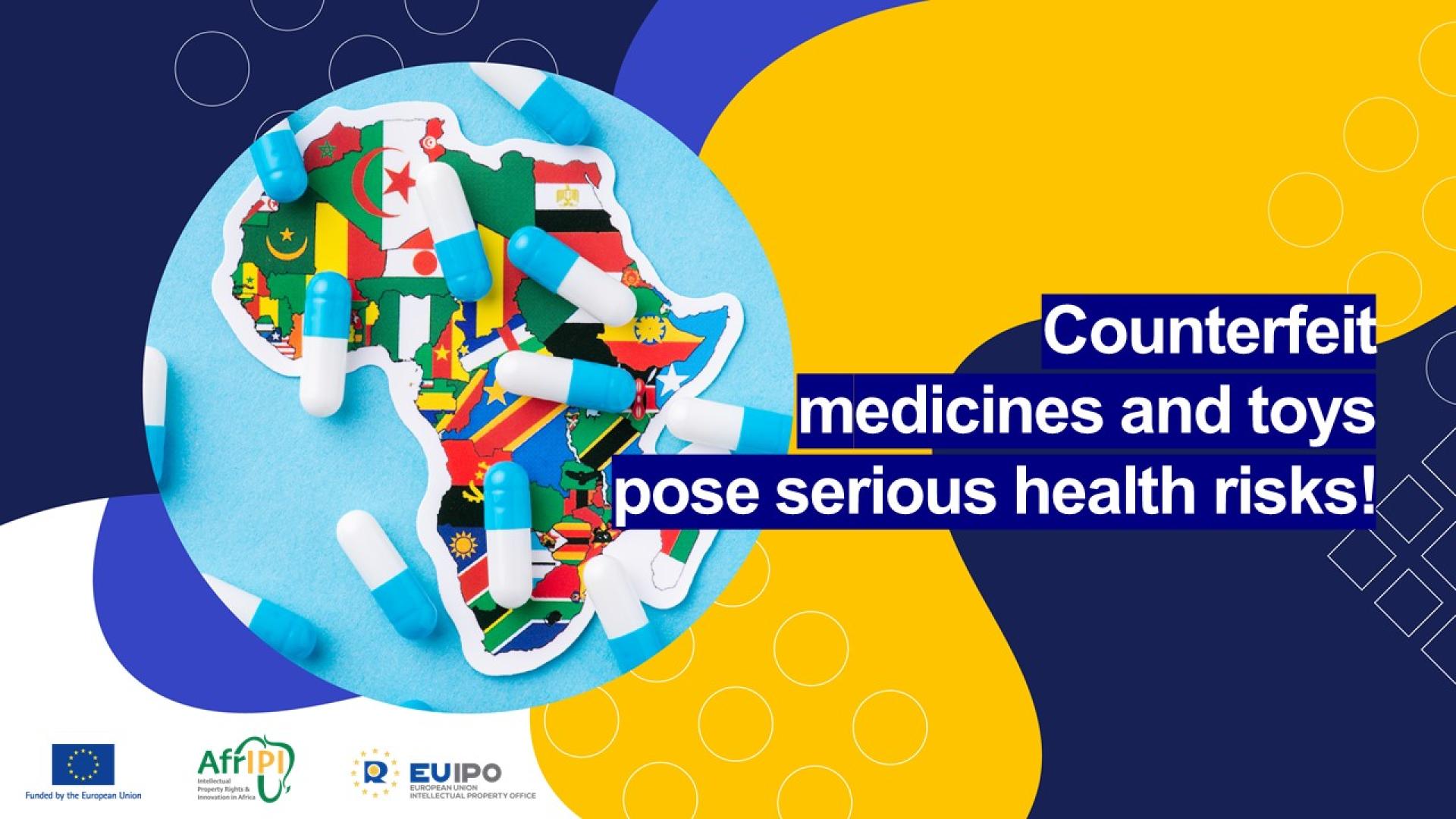Protecting health and safety: combating counterfeit medicines and toys in Africa

Intellectual property (IP) theft and counterfeiting are major global concerns, causing significant threats to public health, safety, economic stability, and the environment. The European Union Intellectual Property Office - EUIPO, as a leading international organisation, is committed to supporting efforts to combat counterfeiting and promote intellectual property rights, particularly in the context of the Africa Intellectual Property and Innovation project. The rise of illegal production and trade in counterfeit goods, including medication and toys, creates multiple life-threatening risks, depletes the financial viability of businesses, and ultimately impedes economic growth.
Understanding counterfeiting in medicines and toys
Counterfeit medicines and toys pose serious health risks and threaten economic stability across Africa. The continent faces serious counterfeiting threats and numerous cases of IP theft, mainly due to a lack of exposure and resource constraints which hinder the implementation of existing enforcement and regulatory strategies and frameworks. As the EUIPO, we are working to support African countries in strengthening their intellectual property systems and combating counterfeiting, in line with our strategic vision and the SP2030 objectives.
Counterfeit medication is a growing threat in Africa, involving drugs that are often mislabelled and containing incorrect or no active ingredients. These fake medicines have been linked to treatment failures and deaths, particularly for life-threatening diseases like malaria, tuberculosis, and HIV/AIDS. According to the World Health Organisation, approximately 1 in 10 medical products in low- and middle-income countries is substandard or falsified, with the problem being more severe in Africa. A United Nations report also states that trafficked medical products kill almost half a million sub-Saharan Africans every year.
Counterfeit toys, which are often sold cheaply to attract families with modest incomes, can also constitute a choking or strangulation risk and a fire hazard. They may contain high levels of banned or restricted chemicals, violating safety standards. The trade in counterfeit goods not only poses health risks but also impacts regional development and the economy by reducing sales and profits, leading to job losses and reduced innovation as companies struggle to compete with illegal operators.
For entrepreneurs like Mr Kedumetse Liphi, the inventor of the Chedza Solar Backpack, the importance of IP protection cannot be overemphasised, because it safeguards his unique innovations and adds value to the business by also attracting investors. His product was a victim of counterfeiting issues, leading to an ongoing legal case regarding IP rights infringement. Mr Liphi says that:
“Protecting our brand through trademarks and patents was crucial, but this experience has shown how vulnerable businesses can be without enforcement. IP theft not only threatens our livelihood but also the integrity of our product, which was designed to make a real impact. To support African entrepreneurs, it is crucial to provide more accessible IP education and stronger support systems. Without these resources, innovators will continue to be at risk of having their creations stolen or misappropriated.”
Combatting IP theft and protecting public health
Combating IP theft and counterfeiting requires cooperation between governments, national and international organisations, IP rights holders, and consumers. The EUIPO is working to support this effort, in line with our commitment to promoting intellectual property rights and combating counterfeiting, particularly in the context of the Africa Intellectual Property and Innovation project. These actions include:
-
African governments strengthening IP enforcement and regulations with support from organisations like the African Union, the African Regional Intellectual Property Organization, and the African Intellectual Property Organization, to regulate the production and distribution of goods, especially in the pharmaceutical and toy industries.
-
Enhancing collaboration between stakeholders, including governments, law enforcement, IP rights holders, and international organisations, to tackle counterfeiting effectively. The African Union’s Agenda 2063 and Sustainable Development Goals aim to implement strategies to advance and protect the continent’s interests, guiding development over the next fifty years.
-
Increasing the number of public awareness campaigns to educate people about the dangers of counterfeit medicines and toys, enabling consumers to identify and avoid these products, thereby reducing health risks and improving safety.
-
Promoting a positive environment by ensuring product safety, implementing advanced technologies to detect and prevent counterfeit goods, and assisting consumers in identifying genuine products and reporting suspicious items.
The fight against counterfeiting and intellectual property rights infringement is an ongoing challenge that requires sustained collaboration across different levels of law enforcement, building public awareness, and enhancing the effective and applicability of regulatory frameworks. Counterfeit products not only undermine market integrity but also pose serious risks to consumer safety and business development. By fostering stronger partnerships between governments, businesses, and communities, it is possible to safeguard consumers, uphold IP rights, and promote more secure and trustworthy marketplaces.